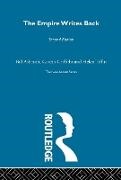Read more
List of contents
General Editor's Preface. Acknowledgements. Introduction: What are post-colonial literatures?, Post-colonial literatures and English Studies, Development of post-colonial literatures, Hegemony, Language, Place and displacement, Post-coloniality and theory., 1. Cutting the ground: critical models of post-colonial literatures: National and regional models, Comparisons between two or more regions, The 'Black writing' model, Wider comparative models, Models of hybridity and syncreticity., 2. Re-placing language: textual strategies in post-colonial writing: Abrogation and appropriation, Language and abrogation, A post-colonial linguistic theory: the Creole continuum, The metonymic function of language variance, Strategies of appropriation in post-colonial writing., 3. Re-placing the text: the liberation of post-colonial writing: The imperial moment: control of the means of communication, Colonialism and silence: Lewis Nkosi's Mating Birds, Colonialism and 'authenticity': V.S Naipaul's The Mimic Men, Radical Otherness and hybridity: Timothy Findley's Not Wanted on the Voyage, Appropriating marginality: Janet Frame's The Edge of the Alphabet, Appropriating the frame of power: R.K. Narayan's The Vendor of Sweets., 4. Theory at the crossroads: indigenous theory and post-colonial reading: Indian literary theories, African literary theories, The settler colonies, Caribbean theories., 5. Re-placing theory: post-colonial writing and literary theory: Post-colonial literatures and postmodernism, Post-colonial reconstructions: literature, meaning, value, Post-colonialism as a reading strategy, Re-thinking the Post-colonial. Conclusion: More english than English. Reader's guide. Notes. Bibliography. Index.
Summary
This was the first major theoretical account of a wide range of post-colonial texts and their relation to the larger issues of post-colonial culture, and remains one of the most significant works published in this field.

